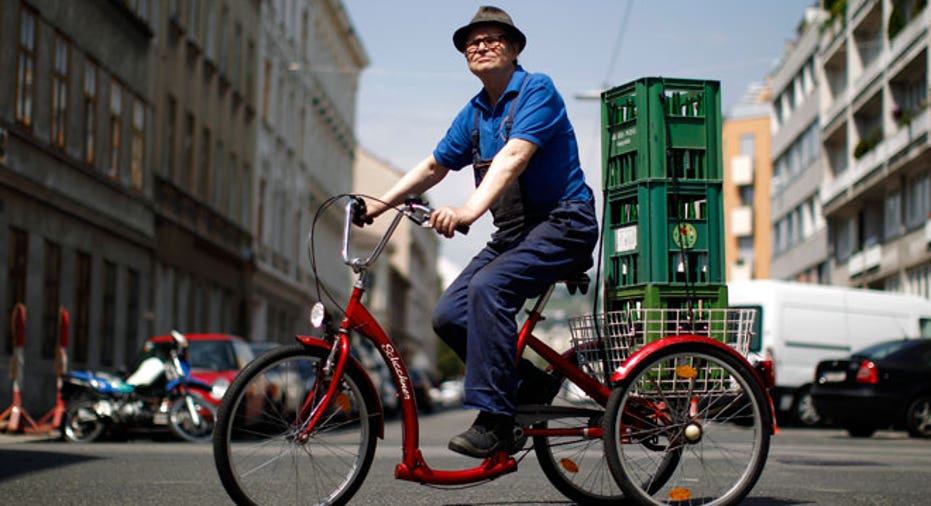Tips for Boomers About to Transition Into Retirement

Baby boomers continue to redefine the meaning of retirement. We are more educated than our predecessors and want our golden years to be filled with learning new things, taking on new challenges and traveling the world. Health is also a priority among our generation and boomers will want to stay active in retirement. But as much as we all look forward to leaving the workforce, the transition can be daunting.
The emotional aspect of leaving the workforce can be jarring and many new retirees have a tough time organizing, prioritizing and feeling productive with the new-found time. To get some tips for boomers making the shift into their non-working life, I spoke to New-York based psychologist and money coach Dr. Barbara Nusbaum to find out how boomers can prepare mentally and plan a meaningful and active retirement. Here is what she had to say:
Boomer: What advice do you have for baby boomers getting ready to leave the workforce?
Nusbaum: I think the way baby boomers can plan for leaving the workforce is to "plan" for leaving the workforce. Most people don't think about planning in a holistic way, they focus on planning around health issues or financial issues, but it needs to be more inclusive. What I mean by that is protecting and planning for problems that come up with finance and health, but also planning around meaningful retirement, like ways to maintain connections with people, your social network, your family, your friends, or developing current interests and focus, whether it is avocations or vocations, new ones for retirement. Thinking about retirement not just as an on off switch, you don't just retire in one day. Retirement is a process and you will need to think about it as a process.
Boomer: What lifestyle changes should boomers prepare to make in retirement?
Nusbaum: There are going to be changes in a number of areas. The most obvious would be the financial and health change, which can bring a lot of stress and boomers need to prepare for these changes psychologically and emotionally.
When people stop working they often feel like they are losing friendships and connections along with their identity as they worry about what life is going to look like. People wonder: How am I going to still feel important and relevant in a culture that often over values work and under values people’s contributions in non-paying jobs? That is one change in terms of psychological issues. Retirees’ connections decrease often as they are not working and they need to think about how they are going to expand or create new networks of friends, colleagues, new volunteer colleagues. This is different between men and women because women often have larger social networks than men. Men's lives are more likely to be focused around their worklife.
Another change would be around family. If you have a partner, the different ways you are going to be spending time together can add stress. For instance for 30 or 40 years one or both of you has been out of the house and now it is going to be a time when both partners are going to be around and interacting more. Or you might be around children more or want to be around children more and that can require an attitude shift.
Boomer: With so much free time on their hands, what daily activities would you recommend for boomers to reduce the anticipated boredom in retirement?
Nusbaum: I think this is such a good question and a challenging one. Retirement requires a lot of planning. Start to think about what you are going to do in retirement: are you going to remain in the workforce part time, re-educate or re tool yourself by going back to school, switching jobs, learning a different skill or volunteer?
What happens in retirement, the shift is from an “outwardizing” mode to “inwardizing.” Before retirement if you are working in the home or outside the home you are often very engaged with outside structure - you are at a job or you are on committees so you are kind of structured by the outside world. When you retire it is more inward looking of how you have to structure your own time and your own day and thinking about what drives you, what is interesting to you, rather than it being determined by outside forces.
Boomer: How can families help boomers deal with the emotional aspect of no longer being an active participant in the workforce?
Nusbaum: Families should have discussions about what retirement life will look like. Partners should discuss what each person wants retirement to look like: are you going to be more active grandparents, travel more, take up volunteering or home improvement repairs.
Also in terms of the difficulties that come with retirement whether it is health or financial, I think these are crucial conversations to be having with the next generation. It is really a family project when people retire, and financial or health problems are a natural part of almost every families’ lives and members should discuss how everybody collectively be clear eyed and speak frankly about what a future is and how to best plan intergenerationally.
Boomer: Would you recommend volunteer work for the retiree?
Nusbaum: I would definitely recommend boomers stay active either working or volunteering. I know people who volunteer with tutoring, at museums, on financial boards of non profit organizations. Staying engaged and excited with interests and passions will make life more fulfilling.



















